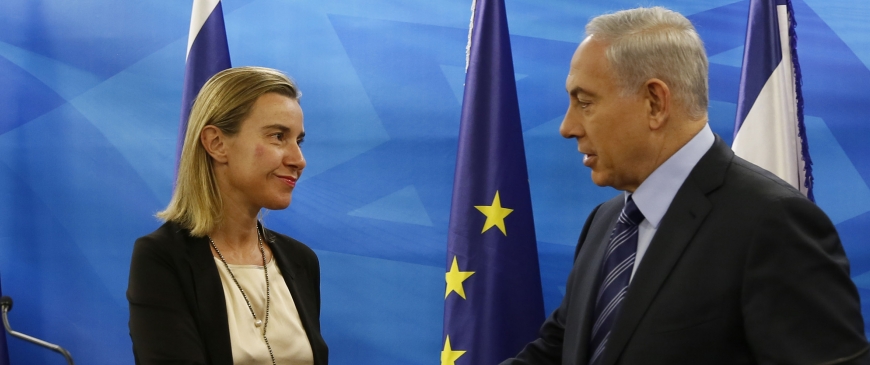
Facing new opportunities in Europe?
Last week in an op-ed for The Jerusalem Post, Matan Asher called for Israel to make alliances with European eurosceptic parties. He argues that these parties are true supporters of Israel and that co-operating with them will significantly improve Israel’s position. Such alliances however will only damage Israel’s image, and the argument in favor of them ignores the complex motives the lie behind the pro-Israel policies of these parties.
Evidence indicates that there are serious questions about the sincerity of the pro-Israel stance of the eurosceptic parties that belong to the populist radical Right family (Vlaams Belang and Sweden Democrats for example). In ideological terms, their nativist ideology allows them to link Israel’s security challenges to what they perceive as one of Europe’s challenges – Islam. But supporting Israel (and the Jews) also has a functional role: it allows these parties, especially the ones with a questionable past, to present a “cleaner” image. This is to some extent a “shield” that protects them from being accused of anti-Semitism.
Austria for example is the home of the FPÖ. The current leader of the party, Heinz-Christian Strache, visited Israel in 2010 and expressed his support. Two years afterwards, the party’s true face was exposed once again. In 2012 the FPÖ organized an annual Waltz dinner which took place on the Holocaust Memorial Day, and in the same year Strache published an anti-Semitic cartoon on his Facebook page (with an EU banker featuring a hooked nose and Star of David cufflinks). The flirt with the far Right continues.
Reputation is also an issue. The Jewish state is suffering from boycotts and de-legitimisation campaigns across Europe. Associating itself with eurosceptic parties is the last thing Israel needs. Many perceive these parties as racist and some of them are even treated with a “cordon sanitaire” by the large mainstream parties. Just imagine what would be the effect on Israel’s already fragile image if it were associated with them.
As for UKIP, Asher highlights the fact that UKIP abstained during the recent vote in the British Parliament for the recognition of Palestine. If UKIP are big supporters of Israel, why did the MP of the party (who was sworn as a UKIP MP the same day of the voting) not attend the debate and vote against the motion? The fact is that foreign policy is only a secondary issue for UKIP. Moreover, when it comes to Israel the party’s opinion is not very different from that of many Conservative and Labour MPs: last August the leader of the party, Nigel Farage, mentioned that ultimately a two-state solution is required.
Asher also emphasises that these euroskeptic parties have “Judeo-Christian values.” I assume these are what led the Sweden Democrats to call for the banning of male circumcision in their country. Apparently their Judeo-Christian values do not include some Jewish traditions. Farage’s Judeo-Christian values no doubt were behind his alliance in the European Parliament with a Polish member of the Congress of the New Right, a party whose leader has expressed racist remarks and revisionist statements about the Holocaust. Are these the allies we want and need in Europe? One thing I do agree on with Asher: “To give up on Europe would be a huge mistake for Israel.” Nonetheless the solution is not quite as Asher portrays it. Israel has strong friendships on the continent. The voices that came from governments in London, Berlin and Prague during the recent Gaza war indicate this. Yes, disagreements are present and European leaders are frustrated with the dead peace process, but is looking for parties that support Israel – no matter how questionable these parties might be – the solution?
Political pragmatism is important, as is differentiating among the various eurosceptic parties. Yet, Israel should aspire to cooperate with the political parties which are truly committed to the liberal-democratic tradition. These are the real allies of Israel and of the Jewish communities in Europe.
Yehuda Ben-Hur Levy is a Clara Marina O'Donnell Fellow at the Centre for European Reform.
